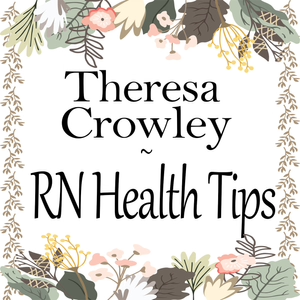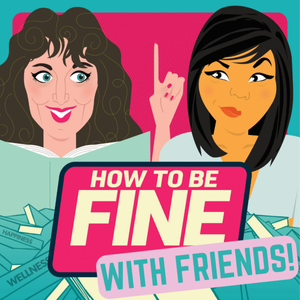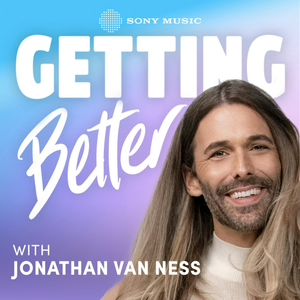
Exploring Abolition, Intergenerational Trauma, and Creative Resistance w/ Benjamin Lundberg Torres Sánchez
06/28/24 • 54 min
Benjamin
Words matter. Especially when it comes to adoption. Benjamin Lundberg Torres Sanchez isn't just "adopted" - they were separated from their first family for 28 years.
In this episode, we unpack how the language we use shapes our understanding of adoption. Benjamin shares their journey of rejecting industry terminology and embracing more accurate descriptions of their experience.
We discuss how this shift in language opens up new possibilities for solidarity and political action.
"I think it's just really important to name what happened to us."
What we discussed
(00:22) Who is Benjamin Lundberg Torres Sanchez?
(01:41) Conceived in violence
(04:58) Adoption day
(07:23) Good experiences but still angry OR Good vs. bad adoptions
(10:10) Learning to think critically about adoption OR Language of adoption
(14:35) Being hungry for community OR Availability of light skinned children
(18:56) Not only focusing on adoptees OR Adoptees are not alone
(26:46) Organized abandonment
(28:30) We Are Holding This Magazine
(37:46) Intersectionality vs. isolation
(44:12) Finding alternative power brokers OR Finding power brokers
(48:14) Get curious
(51:32) Support Benjamin
Links
Benjamin
Words matter. Especially when it comes to adoption. Benjamin Lundberg Torres Sanchez isn't just "adopted" - they were separated from their first family for 28 years.
In this episode, we unpack how the language we use shapes our understanding of adoption. Benjamin shares their journey of rejecting industry terminology and embracing more accurate descriptions of their experience.
We discuss how this shift in language opens up new possibilities for solidarity and political action.
"I think it's just really important to name what happened to us."
What we discussed
(00:22) Who is Benjamin Lundberg Torres Sanchez?
(01:41) Conceived in violence
(04:58) Adoption day
(07:23) Good experiences but still angry OR Good vs. bad adoptions
(10:10) Learning to think critically about adoption OR Language of adoption
(14:35) Being hungry for community OR Availability of light skinned children
(18:56) Not only focusing on adoptees OR Adoptees are not alone
(26:46) Organized abandonment
(28:30) We Are Holding This Magazine
(37:46) Intersectionality vs. isolation
(44:12) Finding alternative power brokers OR Finding power brokers
(48:14) Get curious
(51:32) Support Benjamin
Links
Previous Episode

Unpacking Adoption w/ Henry: Identity, Community, and Healing
Henry
What happens when a Black child is adopted into a white Mormon family?
The Mormon church silenced Henry's identity as a Black transracial adoptee, but he's done being quiet. From "colorblind" racism to the weight of forced gratitude, he exposes the ugly truth behind his adoption.
We explore the impact of media representation, the importance of acknowledging adoptee anger, and why abolishing the current system might be the only way forward.
Henry shares his journey of finding community with other adoptees and reclaiming his voice.
"My life was really to fill this hole in my parents' life instead of my parents being there to raise children.
What we discussed
(00:22) Who is Henry?
(01:48) Coming out of the fog
(03:52) Adopted through the mormon church
(06:34) Growing up with adopted sisters
(08:26) Adoptees vs. adoptive parents on This is Us OR Adoptees vs. Adoptive parents on TV
(13:23) Expectation of gratefulness OR “I want someone to love me”
(20:26) Being allowed to feel & express
(23:21) Alternatives to family policing OR Mind your own business
(26:02) Relationship with adoptive parents while being abolitionist
(32:27) Find your inner voice
Links
Follow us on social media: Twitter | Instagram | Tiktok
Credits
Special thanks to Samuel Oyedele for editing our podcast, support his work on Instagram or e-mail him at [email protected]
Next Episode

The Role of Legal Advocacy in Family Reunification w/ Keshia Adeniyi
Keshia
The child welfare system is waging war on Black families, and Keshia Adeniyi-Dorsey is on the front lines. In this episode, she shares her journey from foster child to family defender, exposing the racist roots of CPS and the urgent need for change.
Keisha breaks down her tactics for protecting families during CPS investigations, from refusing home entry to shutting down fishing expeditions. Her success rates are fantastic: 95.8% of parental rights protected and 93.7% of families reunified.
"We already know, and we've already done in the past, like, right? Like, took care of ourselves, we took care of everybody else's kids too, right? We don't need the system to do it."
What we discussed
(00:23) Meet Keshia Adeniyi-Dorsey
(01:37) Adoptions and Safe Families Act
(06:08) Reality of CPS investigations
(12:17) Protecting families during CPS investigations
(17:11) Reuniting 93.7% of families
(23:46) Challenges of advocating for families OR Dealing with incompetence
(28:56) We don’t need police for that OR The color of the system OR Black families don’t need CPS OR We don’t need help OR Not everyone needs help
(35:33) Affording counsel
(43:39) Truth to power
Links
Connect with Keshia: Website | LinkedIn
Follow us on social media: Twitter | Instagram | Tiktok
Credits
Special thanks to Samuel Oyedele for editing our podcast, support his work on Instagram or e-mail him at [email protected]
If you like this episode you’ll love
Episode Comments
Generate a badge
Get a badge for your website that links back to this episode
<a href="https://goodpods.com/podcasts/adoptees-crossing-lines-253817/exploring-abolition-intergenerational-trauma-and-creative-resistance-w-57597496"> <img src="https://storage.googleapis.com/goodpods-images-bucket/badges/generic-badge-1.svg" alt="listen to exploring abolition, intergenerational trauma, and creative resistance w/ benjamin lundberg torres sánchez on goodpods" style="width: 225px" /> </a>
Copy




